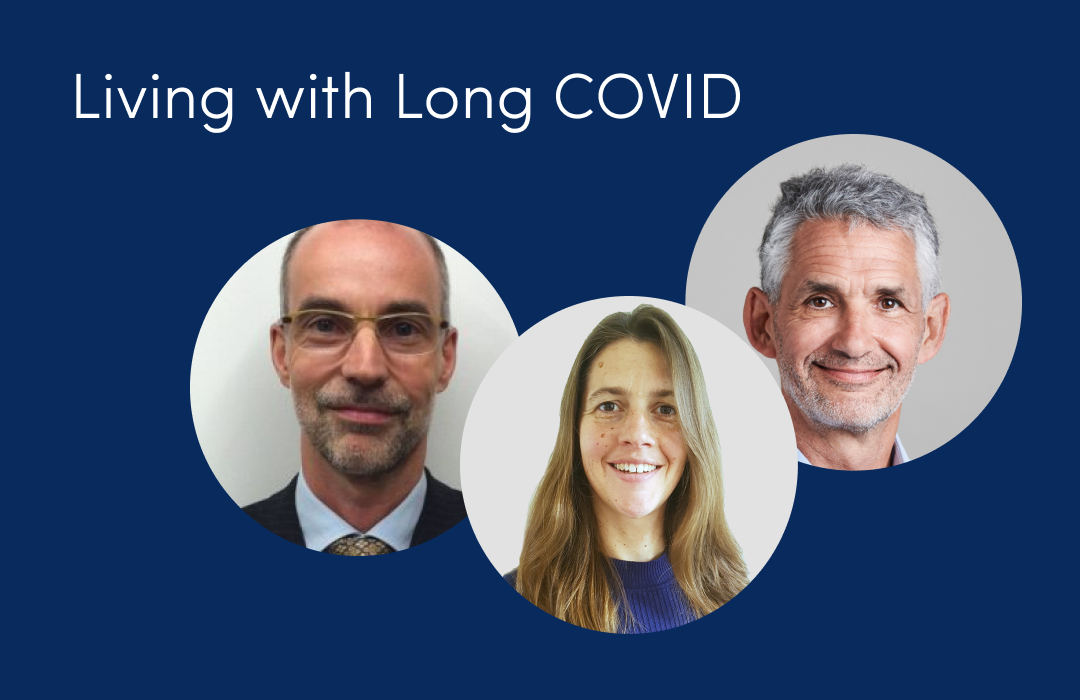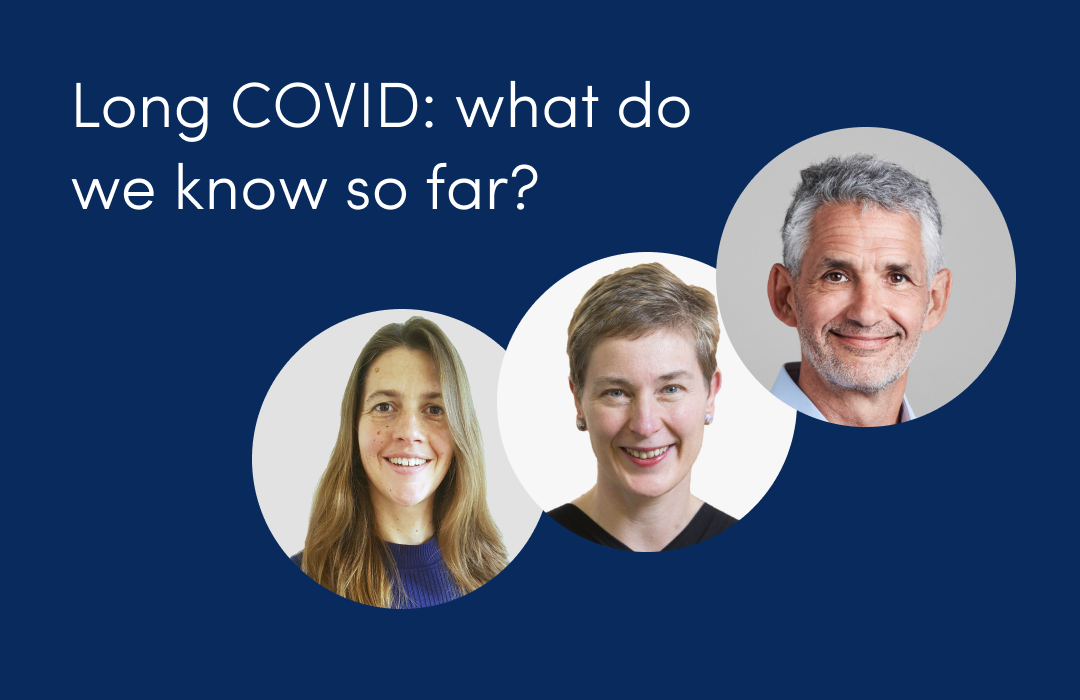.png)
COVID vaccines: are they working?
August 25, 2021

This article has not been updated recently
- Why should people get vaccinated against COVID?
- How long do COVID vaccines work for?
- Will we need COVID vaccine booster shots?
In our latest expert webinar, Professor Tim Spector, lead scientist at the ZOE COVID Study, was joined by Dr Anna Goodman, an infectious diseases consultant at Guys and St Thomas’ Hospital who’s currently working on booster vaccine trials. Also on the panel was Professor Alexander Hammers, Professor of Imaging and Neuroscience at King's College London, who has had personal experience of long COVID.
They discussed how well the COVID vaccines are working and whether we might need booster shots in the future.
Why should people get vaccinated against COVID?
All the evidence so far shows that COVID vaccines are safe and effective, and have greatly reduced the rate of hospitalisation and deaths from COVID-19 in those who receive them. In turn, more people getting their jabs is a significant reason why we’ve been able to end most restrictions across the UK.
“It’s great to see many people getting vaccinated across the UK,” says Anna. “The main reason people should get vaccinated is to prevent hospitalisation and death from COVID-19. The additional benefit is that having your jab also reduces your risk of spreading the disease,” she explains.
Rates of vaccine hesitancy are dropping, Anna adds, with some people who were nervous having since gone on to be vaccinated after seeing their friends and family get their jabs.
“Reassuringly, almost everybody can have a vaccine - sometimes it’s a matter of which vaccine. For example, people with a particular allergy may need to have a certain type of vaccine,” explains Anna.
Some people have been nervous about getting a jab because of possible side effects. Thanks to our amazing ZOE COVID Study contributors, we were able to show that the majority of people only experience mild side effects which tend to pass after a couple of days.
“Emerging data suggests vaccines reduce the number and severity of COVID-19 symptoms - so if you have a jab and then go on to catch COVID you’re less likely to be very unwell and take a long time to recover. It’s also looking like being vaccinated reduces your risk of getting long COVID,“ says Alexander. You can hear more about long COVID in our previous webinar.
By getting your jabs you’re helping to reduce the incidence of COVID-19 in the population and keep everyone protected, including children who aren’t yet eligible and those whose immune systems respond less well to the vaccine.
Vaccines are also becoming available to teenagers, and could be rolled out to younger children in the future.
While younger people can sometimes feel they don’t need a vaccine if their risk of hospitalisation is relatively low, vaccinating children and teenagers will make them less likely to spread the disease to their friends and families, helping to protect those at greatest risk from the virus.
How long do COVID vaccines work for?
“There are yet to be many studies looking exhaustively at vaccine effectiveness over time, with a large number of people, against the more recent variants,” Tim says, “Overall, the data isn’t clear yet.”
You can see the small number of studies and their findings collated here.
After crunching data from over a million tests logged by double vaccinated contributors and more than over 73,000 unvaccinated contributors, the ZOE COVID Study has been able to see how long fully vaccinated people are protected for.
Tim shared the latest analysis from the ZOE team on data from UK contributors after the 26th May 2021 - when the Delta variant became dominant.

“Our data shows that between the first 14 to 30 days after your second vaccine, you have an initial 77%-87% effectiveness against the Delta variant. But as time goes on, the effectiveness drops to 77% around 4-5 months after a second Pfizer jab and to 68% around 3-4 months following a second AstraZeneca jab,” Tim reveals.
“We don’t yet have enough data to show what happens to vaccine efficacy beyond 6 months after being double jabbed,” he adds.
Despite this, Alexander feels positive. “It’s encouraging that we’re still able to use the same vaccines developed early on in the pandemic despite new variants appearing,” he says.
Will we need COVID vaccine booster shots?
Tim cautions that Israel - who are ahead of the UK in vaccine rollout - are now seeing an increase in hospitalisations and deaths in higher risk groups who were among the first to receive both vaccine doses. They have now started to give booster shots to their older population.
In the UK, many older and clinically vulnerable people received their vaccinations up to 8 months ago.
“You might want to take different amounts of care depending on your own situation and the infection rates in the population,” Anna says.
“Data will continue to follow up vaccine trial participants which are now reaching the one year mark. If you’re vulnerable, you shouldn’t necessarily worry but, continue to be cautious - as should all of us be.”
The UK Government has said boosters will be coming in the autumn and may be prioritised for certain groups. Exactly which booster someone might receive will take into account how long it’s been since their other doses and the current most dominant variants.
In the future, boosters can quickly be modified to keep up with potentially new COVID-19 variants.
“Because of the extensive work carried out to create the first vaccines and testing the technology, creating new vaccines only requires small tweaks which don’t have to be tested on tens of thousands of people like the initial ones,” explains Anna.
With COVID cases still high and showing no signs of dramatic decline, it’s important to keep looking at how well our current vaccines are working.
When you’ve had a COVID-19 vaccine, be sure to log it in the ZOE COVID Study app to help us understand the impacts of vaccination.
Stay safe and keep logging.
Please note: Dr Anna Goodman has participated in this webinar in a personal capacity offering her expertise. Her views are her own and do not represent those of Guy’s and St Thomas’s Trust.












.png)


.jpg)














.png)







%202.png)


















.png)




%20(1).png)


